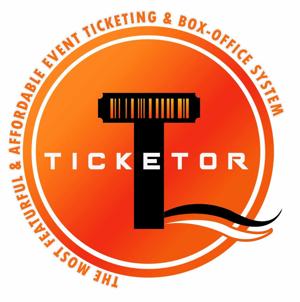How Data Insights Can Enhance Event Planning and Ticketing Strategies
Understanding audience behavior is key to organizing successful events. With the rise of online ticket sales, event organizers have access to a wealth of data that can help improve future events. From tracking purchasing patterns to optimizing pricing strategies, analyzing ticket sales data ensures better decision-making and a more engaging attendee experience. Whether you’re looking to sell event tickets online or manage in-person sales efficiently, leveraging ticketing data can significantly enhance your event’s success.
In this article, we’ll explore how data from online ticket sales can be used to maximize event success, enhance marketing efforts, and improve revenue generation.
The Power of Data in Online Ticket Sales
Selling tickets online does more than just streamline the purchasing process—it provides crucial insights into audience behavior, preferences, and sales trends. Every ticket purchase generates valuable data, including:
✔ Sales Volume & Trends – Identify peak purchasing times and demand fluctuations.
✔ Attendee Demographics – Understand your audience by analyzing age, location, and purchasing behavior.
✔ Marketing Performance – Measure the effectiveness of different promotional channels.
✔ Pricing Optimization – Evaluate which pricing models perform best for different types of events.
By leveraging this data, event organizers can fine-tune their strategies and make data-driven decisions for future events.
Key Metrics to Analyze for Future Event Success
1. Ticket Sales Timeline & Buyer Behavior
Tracking when tickets are sold provides insight into customer purchasing habits. For example:
Do most sales occur early during pre-sales, or do they spike closer to the event?
How effective are early-bird pricing incentives?
Are last-minute discounts driving additional sales?
By understanding when ticket purchases peak, organizers can optimize Box-office system strategies and adjust marketing efforts accordingly.
2. Audience Demographics & Preferences
Knowing who is attending your event helps refine future event planning. By analyzing ticket buyer demographics, you can:
✔ Create tailored marketing campaigns targeting specific audience segments.
✔ Offer personalized experiences, such as VIP options or loyalty rewards.
✔ Select event locations that match audience distribution patterns.
For example, Ticketor, a leading ticketing platform, provides demographic insights that help organizers customize their marketing and engagement strategies.
3. Marketing Channel Effectiveness
Which marketing strategies are driving the most ticket sales? Data analysis can show:
Which social media ads are converting best.
How email campaigns influence ticket purchases.
Whether influencer marketing or partnerships boost sales.
If a large portion of your ticket sales come from Instagram ads but Facebook ads underperform, reallocating your budget can increase ROI.
4. Pricing Strategies & Revenue Optimization
Pricing is one of the most critical aspects of selling event tickets online. By analyzing sales data, event organizers can determine:
✔ The optimal price point for different ticket tiers.
✔ Whether dynamic pricing models (where prices change based on demand) improve revenue.
✔ If VIP or premium packages attract a profitable audience.
Ticketor Platforms allow organizers to experiment with pricing structures and evaluate real-time performance, helping to maximize revenue.
5. No-Show Rates & Refund Patterns
Understanding attendance rates is crucial for future planning. If an event has a high percentage of no-shows, organizers might need to:
Introduce stricter refund policies.
Implement reminder campaigns to encourage attendance.
Offer incentives for early check-ins.
By analyzing no-show data, event planners can improve forecasting and resource allocation.
How to Use Data to Improve Future Events
1. Refine Target Audience Marketing
Use ticketing data to build accurate audience profiles and create targeted promotions. If most attendees are between 25-35 years old and purchase tickets via Instagram ads, focusing efforts on that demographic increases sales efficiency.
2. Adjust Ticket Pricing Based on Demand
Dynamic pricing models adjust ticket costs based on demand. If ticket sales surge after early-bird promotions, organizers may increase prices in later phases to maximize profits.
3. Enhance Customer Experience
Feedback collected from past ticket buyers can reveal pain points, such as long wait times at the entrance or difficulties in online purchasing. Addressing these issues ensures a smoother experience for future attendees.
4. Improve Event Logistics & Capacity Planning
By analyzing past attendance data, event organizers can better predict crowd flow, optimize venue layouts, and enhance overall event management.
5. Increase Repeat Attendees with Loyalty Programs
Data from previous events can help create loyalty programs that encourage repeat attendance. For instance, offering early access to past attendees for upcoming events fosters a loyal customer base.
FAQs About Analyzing Online Ticket Sales Data
1. What are the most important data points to track from online ticket sales?
Key metrics include ticket sales timeline, buyer demographics, marketing channel effectiveness, pricing performance, and attendance rates. These insights help optimize future event planning.
2. How can I use ticket sales data to improve marketing strategies?
By analyzing where your ticket sales come from (social media, email, ads, referrals), you can invest more in high-performing channels and refine underperforming ones.
3. Can analyzing ticket sales help improve event security and fraud prevention?
Yes! Tracking suspicious purchasing patterns, such as bulk ticket buying from a single source, helps prevent fraud and unauthorized resales.
4. What tools can I use to analyze online ticket sales data?
Most ticketing platforms, provide built-in analytics and reports to help track sales trends, buyer behavior, and marketing performance.
5. How can I use data insights to boost ticket sales for my next event?
Leverage sales patterns to optimize pricing, adjust marketing efforts based on audience engagement, and use targeted promotions to increase early sales.
Conclusion
Event organizers have more tools than ever to analyze and optimize ticket sales. By leveraging Box-office system data, refining marketing strategies, and improving pricing models, future events can become more successful and profitable.
By embracing a data-driven approach, organizers can sell event tickets online more effectively, ensure better audience engagement, and increase overall event success.


Write a comment ...